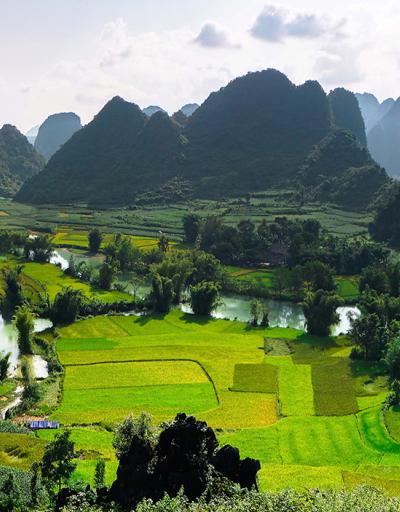
Hydrogeological significance of mediterranean geoparks
IGCP project 730 is dedicated to investigating the hydrogeological landscapes surrounding potential UNESCO Global Geoparks across Mediterranean nations, including Egypt, Jordan, Morocco, Spain, the State of Palestine, and Tunisia. This comprehensive study aims to enhance understanding and management of water resources from both quantitative and qualitative perspectives. By examining the intricate hydrogeological settings surrounding these regions' water sources, the project seeks to assess their suitability for establishing geological tourism hubs, thereby strengthening the role of potential geoparks within their respective societies.
Focusing on critical issues crucial for long-term sustainability, the project will address challenges such as water provision issues associated with climate change; hydrogeological water availability; and groundwater quality and health. Through its innovative approaches and findings, this initiative will play a vital role in advancing global water sustainability efforts.
Key information
Project Leader
Birzeit University, State of Palestine
Highlights
Establishment of investigative scope
The project involves six partner countries situated along opposite coasts of the Mediterranean (Morocco, Spain, Tunisia) and in the heart of the Middle East (Egypt, Jordan, State of Palestine). It focuses on conducting hydrogeological assessments ranging from existing geoparks in Morocco, Spain, and Tunisia to potential geoparks in Egypt, Jordan, State of Palestine.
- The Las Loras Geopark in Spain features a karstic terrain rich in diverse geomorphological features and biodiversity, including various plant and animal species. Hydrogeological and hydrological data is available, and shows an interaction between surface water and groundwater, evident in its well-discharged springs.
- The Haouz plain geopark, in the High Atlas Mountains, Morocco, exhibits complex geological formations, hosting thermal springs and rich biodiversity. Structural elements complex in Cambrian terrains are outcropped.
- The Ein Sultan geosite, located in the Jericho area in the State of Palestine, has a fascinating spring system that has maintained stable levels for decades. Rich in historical significance, this site has been home to diverse civilizations, leaving profound cultural and architectural imprints. Exploring its hydrogeological characteristics promises to unveil the secrets behind its consistent spring discharge. Collaborative efforts between the State of Palestine's Water Authority, Jericho municipality, and the project team have fostered a deeper understanding of the site's significance, prompting increased focus from the tourism ministry.
Workshop
A workshop convened in Morocco in August 2021 provided a platform for the project team to look into the geological intricacies of the Zat Valley near Marrakesh, from a hydrogeological point of view. Additionally, two online workshops were conducted during this period to facilitate knowledge exchange.
Water Sampling
Water sampling campaigns have been conducted in various locations, including Azraq (Jordan), Zat Valley (Morocco), Montañas do Courel and Las Loras (Spain), Ein Samia (State of Palestine) and the Zagouane basin (Tunisia). These integrated hydrogeological investigations encompass diverse processes such as cascade discharge systems (State of Palestine), hydrothermal originated processes (Spain and Tunisia), complex hydrogeological formations (Morocco), and underground-depleted reservoir (Egypt, Jordan).
Recent publications
This project was developed with the generous financial support of the Jeju Province Development Co. (JPDC).

